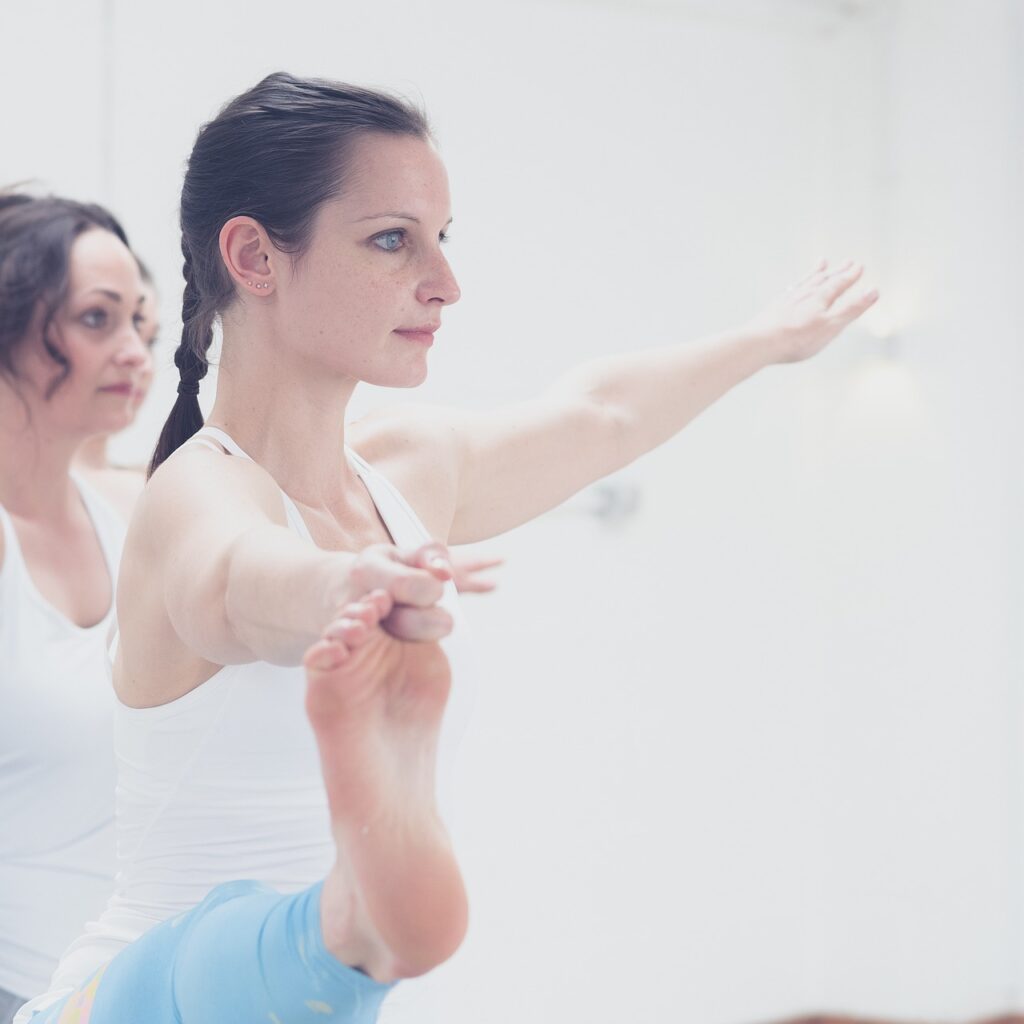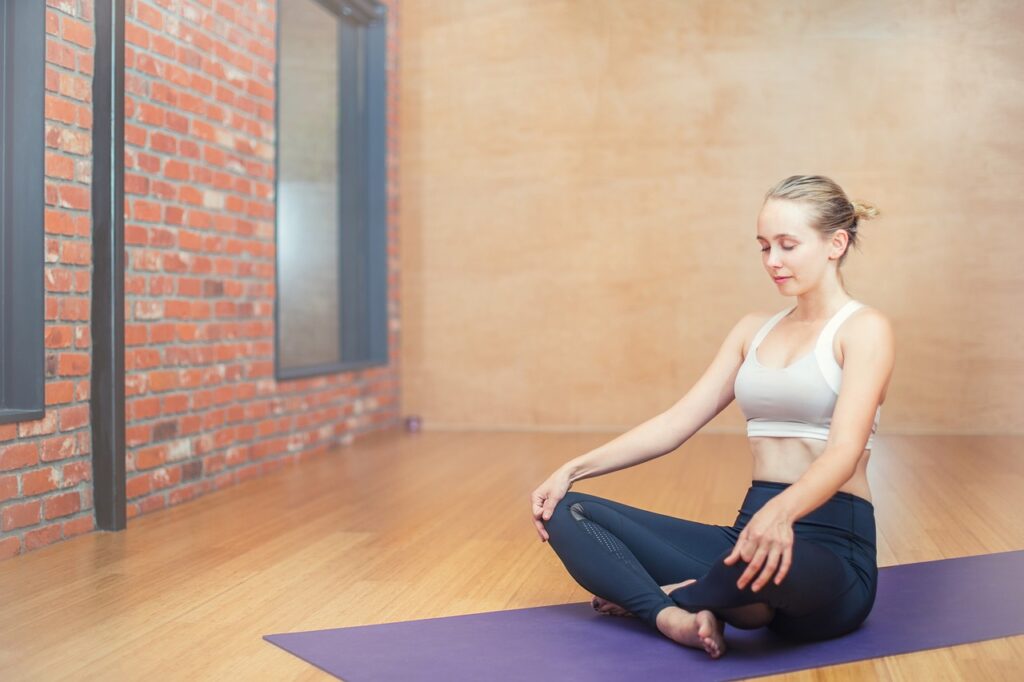In a world constantly striving for progress, yoga has emerged as a powerful catalyst for social change. With its roots deeply embedded in mindfulness, self-awareness, and compassion, yoga offers a unique platform for individuals to address societal issues and foster a sense of unity and equality. By cultivating a deeper connection between mind and body, yoga empowers individuals to recognize their interconnectedness and take meaningful action towards creating a better world for all.

Promoting Physical and Mental Health
Practicing yoga is not only beneficial for your physical health but also for your mental well-being. Through various poses and breathing exercises, yoga helps improve flexibility, strength, and balance. By incorporating yoga into your daily routine, you can enhance your physical well-being and prevent injuries. Additionally, the mindful and focused nature of yoga promotes relaxation and reduces stress levels, ultimately leading to better mental health.
Reducing Stress and Anxiety
Life can often be overwhelming, and stress and anxiety can take a toll on your overall well-being. However, incorporating yoga into your life can help reduce these negative feelings. By engaging in deep breathing exercises and practicing mindful meditation, the calming effects of yoga can alleviate stress and anxiety. Through regular yoga practice, you can learn to manage and cope with life’s challenges in a more relaxed and positive manner.
Enhancing Emotional Well-being
Emotional well-being is crucial for maintaining a balanced and fulfilling life. Yoga promotes emotional well-being by helping you cultivate self-awareness and mindfulness. Through various poses and meditation techniques, yoga encourages you to connect with your emotions, allowing you to better understand and regulate them. By fostering a positive relationship with your emotions, yoga can enhance your overall emotional well-being and foster a more positive outlook on life.
Building Stronger Communities
Yoga has the power to bring people together and build stronger communities. Through group yoga classes and community events, individuals from different backgrounds can come together to share a common experience. This sense of connection and unity promotes a supportive and inclusive community, where individuals can feel a sense of belonging and acceptance.
Creating Connections
Practicing yoga in a group setting can help you forge new connections and build relationships with like-minded individuals. In a yoga class, you have the opportunity to interact with others who are on a similar journey of self-discovery and personal growth. These connections can extend beyond the yoga studio and foster a sense of community outside of your yoga practice.
Promoting Inclusivity
Yoga is a practice that is open to people of all ages, body types, and abilities. It promotes inclusivity by focusing on the individual’s journey and progress, rather than comparing oneself to others. Yoga studios and communities strive to create an inclusive environment where everyone feels welcome and valued, regardless of their background or physical abilities.
Fostering Empathy and Compassion
Practicing yoga cultivates a sense of empathy and compassion towards oneself and others. By connecting with your own emotions and experiences during yoga practice, you develop a deeper understanding of others’ struggles and triumphs. This increased empathy translates into more compassionate actions and interactions in your daily life, fostering a kinder and more supportive community.
Empowering Individuals and Marginalized Groups
Yoga has the power to empower individuals, particularly those from marginalized groups. Through yoga practice, individuals can enhance their self-esteem and develop a sense of confidence and self-worth. Yoga studios and communities also provide a safe space for individuals who may feel marginalized or excluded in other areas of their life, allowing them to feel a sense of belonging and acceptance.
Enhancing Self-esteem
The practice of yoga encourages self-acceptance and fosters a positive body image. As you progress in your yoga journey and witness your own growth and achievements, your self-esteem naturally improves. Yoga helps individuals focus on their own strengths and capabilities, empowering them to overcome self-doubt and embrace their inner strength.
Creating a Sense of Belonging
Yoga studios and communities aim to create a welcoming and inclusive environment where individuals feel a sense of belonging. By providing a safe and non-judgmental space, individuals from all walks of life can practice and connect with others who share similar values and interests. This sense of belonging helps individuals feel connected to a larger community and promotes a sense of support and understanding.
Fighting Social Injustice
Yoga can serve as a powerful tool for fighting social injustice and addressing systemic inequalities. Yoga communities have the potential to be platforms for conversation, education, and action on important social issues. By utilizing the principles of yoga, such as non-violence and compassion, individuals can unite to challenge prejudice, discrimination, and social inequalities.
Breaking Down Barriers
Yoga can break down barriers by challenging stereotypes and promoting equality. The practice of yoga welcomes individuals from all backgrounds, regardless of their age, gender, race, or physical abilities. By practicing and promoting inclusivity, yoga helps create a more diverse and equitable society where everyone is valued and respected.
Addressing Prejudice and Discrimination
Yoga encourages individuals to examine their own biases and prejudices, promoting a more inclusive mindset. Through self-reflection and self-awareness, individuals can recognize and challenge their own discriminatory beliefs and behaviors. By addressing prejudice and discrimination within themselves, individuals can contribute to a more just and inclusive society.
Challenging Stereotypes
Yoga challenges stereotypes by promoting body positivity and acceptance. In a society that often perpetuates narrow beauty standards, yoga celebrates and embraces diverse body types and abilities. By challenging societal norms and embracing all bodies, yoga helps break down the limitations and biases associated with stereotypes, promoting a more inclusive and accepting society.
Promoting Equality
Yoga promotes equality by fostering a sense of unity and interconnectedness. In a yoga practice, everyone is considered equal, regardless of their external appearance or physical abilities. By cultivating a sense of equality on the mat, individuals can transfer this mindset to their daily life and advocate for equality and justice in their communities.
Cultivating Mindfulness and Self-awareness
Yoga encourages individuals to cultivate mindfulness and self-awareness, leading to personal growth and well-being. By practicing mindfulness, individuals can increase their consciousness and live in the present moment. This heightened awareness helps individuals make conscious choices that align with their values and contribute to their personal growth.

Increasing Consciousness
Through yoga practice, individuals can become more conscious of their thoughts, emotions, and actions. By being mindful of the present moment, individuals can recognize patterns and behaviors that may be hindering their growth or causing harm to themselves or others. Increased consciousness enables individuals to make more intentional decisions that contribute to their overall well-being and personal development.
Developing Empathy
Yoga practice encourages individuals to cultivate empathy towards themselves and others. By connecting with their own emotions and experiences during yoga, individuals develop a deeper understanding and empathy for the struggles and triumphs of others. This empathy extends beyond the yoga mat and influences their interactions and relationships in their daily lives.
Promoting Personal Growth
Yoga provides individuals with an opportunity for personal growth and self-discovery. Through regular practice, individuals can explore their physical and mental capabilities, pushing their boundaries and uncovering hidden strengths. Yoga teaches individuals to embrace challenges and setbacks as opportunities for growth, fostering resilience and personal development.
Encouraging Environmental Consciousness
Yoga promotes environmental consciousness by emphasizing the connection between individuals and nature. By practicing yoga outdoors or in studios with eco-friendly practices, individuals can deepen their appreciation for the natural world and become more conscious of their impact on the environment. Yoga communities often advocate for nature preservation and inspire individuals to adopt more sustainable lifestyles.
Advocating for Nature Preservation
Yoga communities often prioritize the preservation of nature and the environment. By organizing events and initiatives that promote the protection of natural spaces, yoga practitioners can create awareness and inspire others to take action. By advocating for the preservation of nature, individuals contribute to the well-being of the planet and promote a more sustainable future.
Promoting Sustainable Living
Yoga encourages individuals to adopt sustainable living practices that minimize harm to the environment. Through mindful consumption and conscious choices, individuals can reduce their carbon footprint and make a positive impact on the planet. Yoga studios and communities often provide resources and education on sustainable living, empowering individuals to make eco-friendly choices in their daily lives.
Inspiring Ecological Responsibility
Yoga inspires individuals to take responsibility for the ecological well-being of the planet. Through practices such as mindfulness and self-awareness, individuals can develop a greater understanding of the interdependence between themselves and the environment. This awareness motivates individuals to take action and make choices that protect and preserve the Earth’s resources.
Inspiring Leadership and Social Responsibility
Yoga practice can inspire individuals to become socially conscious leaders within their communities. By embracing the values of yoga, such as compassion and mindfulness, individuals can lead by example and inspire positive change. Whether it be through organizing community events, advocating for social justice, or volunteering, yoga practitioners can use their influence to empower others and create a more socially responsible society.

Encouraging Civic Engagement
Yoga communities often encourage individuals to engage in civic activities and contribute to their communities. By participating in local initiatives and volunteering, individuals can actively make a difference in their neighborhoods and contribute to positive social change. Yoga practice instills a sense of responsibility towards the well-being of the community, motivating individuals to take an active role in shaping a better society.
Promoting Ethical Decision-making
Yoga practice promotes ethical decision-making by encouraging individuals to consider the consequences of their actions on themselves and others. Through mindfulness and self-awareness, individuals can make decisions that align with their values and foster positive outcomes. Yoga practitioners strive to make choices that promote fairness, justice, and respect for others.
Developing Socially Conscious Leaders
Yoga practice nurtures the qualities of leadership and social consciousness. By embracing the principles of yoga, such as non-violence and compassion, individuals can become leaders who prioritize the well-being and equality of all. Yoga communities provide a supportive environment for individuals to develop their leadership skills and inspire positive change within their communities.
Creating Safe Spaces for Healing
Yoga studios and communities can serve as safe spaces for individuals to heal from trauma and find solace. The non-judgmental and supportive atmosphere in yoga classes allows individuals to reconnect with their bodies and emotions in a safe and nurturing environment. Yoga practice can provide a much-needed respite for individuals seeking emotional healing and support.
Supporting Trauma Recovery
Yoga practice has been recognized as a therapeutic tool for supporting trauma recovery. Through gentle movements, breathing exercises, and mindfulness techniques, individuals can reconnect with their bodies and emotions, promoting healing and resilience. Yoga studios often offer trauma-informed classes that cater to the unique needs of individuals seeking support in their healing journey.
Encouraging Emotional Healing
Yoga promotes emotional healing by providing individuals with a space to release and process their emotions. Through the combination of movement and breath, individuals can release tension and stress, allowing for emotional release and healing. The supportive and non-judgmental nature of yoga communities also fosters a sense of acceptance and understanding, creating an environment conducive to emotional healing.
Providing Respite and Solace
Yoga studios and communities offer individuals a peaceful and nurturing environment where they can find solace and respite from the challenges of daily life. By stepping into a yoga class, individuals can temporarily escape from their worries and anxieties, immersing themselves in a practice that promotes relaxation and inner peace. This respite allows individuals to recharge and regain their emotional well-being.
Fostering Positive Relationships
Yoga practice fosters positive relationships by improving communication, nurturing empathy, and building stronger connections. Through partner yoga or group classes, individuals can learn to communicate effectively and work together towards a common goal. Furthermore, the practice of empathy and compassion within yoga promotes a supportive and positive environment, enhancing relationships within yoga communities.
Improving Communication
Yoga practice teaches individuals to communicate effectively through non-verbal cues and body language. Partner yoga and group classes provide opportunities for individuals to practice clear and respectful communication, fostering stronger connections and a sense of unity. These improved communication skills extend beyond the yoga studio and positively impact individuals’ relationships in their personal and professional lives.
Nurturing Empathy
Yoga practice cultivates empathy by encouraging individuals to connect with their own emotions and experiences. This increased self-awareness allows individuals to develop a deeper understanding and empathy for the struggles and triumphs of others. By fostering empathy, yoga communities create a compassionate and supportive atmosphere where individuals can nurture relationships based on understanding and kindness.
Building Stronger Connections
Yoga communities provide individuals with a space to build stronger connections and form meaningful relationships. By regularly attending classes or workshops, individuals have the opportunity to interact with like-minded people who share a passion for yoga and personal growth. These connections can extend beyond the yoga studio and create a supportive network that enhances individuals’ overall well-being.
Promoting Social Justice and Equality
Yoga can serve as a powerful force in promoting social justice and equality. By incorporating the principles of yoga, such as non-violence and compassion, individuals can become advocates for human rights and equality. Through education, conversation, and action, yoga communities can work towards dismantling systems of oppression and working towards a more just and equitable society.
Advocating for Human Rights
Yoga communities and practitioners have the power to advocate for human rights and fight against injustice. By using their platforms to educate others and raise awareness, individuals can work towards ensuring that all individuals have their fundamental rights protected. Yoga practice instills a sense of responsibility towards the well-being and equality of all.
Fighting Oppression
Yoga practice challenges oppressive systems and promotes social change. By examining and challenging their own privilege and biases, individuals can actively contribute to dismantling oppressive structures. Yoga communities can provide a space for education, conversation, and action against oppression, allowing individuals to stand up against injustice and work towards a more equitable society.
Working Towards Equity
Yoga communities strive to work towards equity by promoting equal opportunities and dismantling systemic barriers. By advocating for inclusivity and addressing social inequalities, individuals within yoga communities can make a significant impact on creating a more equitable society. Yoga practice fosters the values of fairness and justice, inspiring individuals to actively work towards creating a more equal world.
In conclusion, yoga can be a powerful tool for social change, promoting physical and mental health, building stronger communities, empowering individuals and marginalized groups, breaking down barriers, cultivating mindfulness and self-awareness, encouraging environmental consciousness, inspiring leadership and social responsibility, creating safe spaces for healing, fostering positive relationships, and promoting social justice and equality. By integrating yoga into our lives and communities, we can harness its transformative power and work towards a more compassionate, inclusive, and equitable society.

